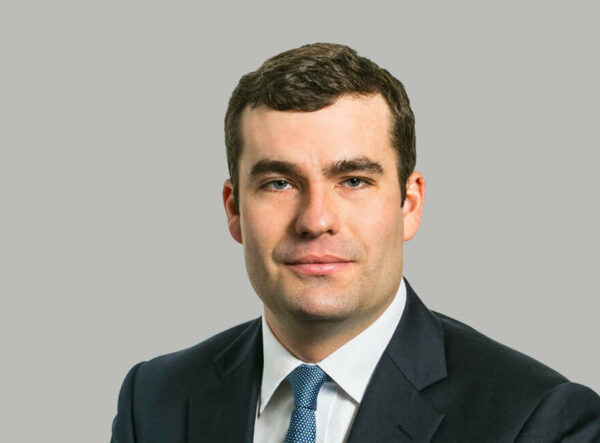Cost liability determined following partially successful application for a final third party debt order (Chedington Events Ltd v Brake and others)

Dispute Resolution analysis: The Defendants and Third Party who collectively advanced an untrue narrative in opposing a third party debt order were held jointly and severally liable to pay the Claimant’s costs. The fixed costs provisions in CPR Part 45 were disapplied in light of that concerted opposition.
Chedington Events Ltd v Brake and others [2024] EWHC 384 (Ch)
What are the practical implications of this case?
This judgment offers guidance, or at least an illustration as to the proper approach for the Court to take in relation to the costs of a partially successful application to make an interim third party debt order final. Under CPR Part 45 (previously rules 45.1 and 45.8 and now rules 45.16 and 45.23), a fixed cost regime applies to applications to enforce judgments unless the Court otherwise orders. Where such enforcement steps are vigorously opposed and the judgment creditor is put to significant costs in the pursuit of enforcement, that fixed cost regime will be disapplied in favour of the usual principle of cost shifting. Where the enforcement steps succeed but only in part, a modest reduction in the costs award can be expected, however, the bulk of the judgment creditor’s costs can be expected to be ordered against the judgment debtor. Where a Third Party descends into the ring and gives evidence opposing the making of a third party debt order, they too may find themselves jointly and severally liable to pay the costs incurred by the judgment creditor.
What was the background?
This judgment deals with a significant number of consequential matters arising from a decision in a long-running dispute to make a third party debt order final, albeit in a reduced sum compared with the interim third party debt order. By the time of the application for the interim order, the Defendants’ costs liability to the Claimant was in the sum of £700,000. They identified a debt owed by the Third Party to the Defendants in the sum of £25,000 and sought the third party debt order to bind that sum as part payment of the cost liability. The Defendants and the Third Party denied the existence of the £25,000 debt, arguing that the sum represented an advance rent for the use of a small holiday let residential unit in a barn at the Third Party’s property. Following cross examination of the relevant witnesses, this narrative was determined to be untrue. However, the Court did take account of various sums paid by the Third Party to other parties at the request and instruction of the Defendants. The effect of those payments was to reduce the extent of the debt owed by the Third Party to the Defendants from £25,000 down to £7,755.04. The third party debt order was made final but only in this reduced sum.
What did the court decide?
The Defendants (unusually) indicated that it would not seek permission to appeal from the Judge but sought to apply for such permission directly to the Court of Appeal and sought an extension of time for doing so. The Claimant submitted that the Judge had no jurisdiction to do so, however, the Judge concluded that as he had sought written submissions on consequential matters as an alternative to handing down the substantive judgment at a hearing, he had jurisdiction and exercised it in granting the extension. The Defendants and Third Party were held jointly and severally liable to pay 90% of the Claimant’s costs of the entire application dealt with at the substantive hearing on the standard basis. The Court considered the fixed recoverable costs provisions in CPR Part 45 but concluded that this was a circumstance in which the Court should disapply them. The Defendants had put the Claimant to cost by opposing the making of a final order and had raised a narrative by way of evidence which was determined to be untrue. Overall, the Claimant had been clearly the successful party and should be awarded its costs. The Third Party was not a party to the underlying dispute but had descended into the arena by giving evidence in support of the untrue narrative. They were jointly and severally ordered to make an interim payment of £20,000 on account of those costs within 14 days. The Court declined to summarily assess the costs, rejecting a submission that the case involved two separate determinations of no more than one day each. No interest was ordered against the Third Party in respect of the sums payable under the terms of the final third party debt order. Following an application by the Defendants, the orders against them were stayed on the condition that they complied with rules 6.23 and 6.24, CPR (provisions relating to furnishing other parties to litigation with the appropriate address for service) within 7 days. No application for a stay was made by the Third Party and no corresponding stay was ordered in respect of the orders made against them.
Case details
- Court: Business and Property Courts in Bristol, Property Trusts and Probate List (ChD)
- Judge: HHJ Paul Matthews (sitting as a High Court Judge)
- Date of judgment: 22 February 2024
Article by Phillip Patterson – first published by LexisNexis
Disclaimer
This content is provided free of charge for information purposes only. It does not constitute legal advice and should not be relied on as such. No responsibility for the accuracy and/or correctness of the information and commentary set out in the article, or for any consequences of relying on it, is assumed or accepted by any member of Chambers or by Chambers as a whole.
Contact
Please note that we do not give legal advice on individual cases which may relate to this content other than by way of formal instruction of a member of Gatehouse Chambers. However, if you have any other queries about this content please contact:


